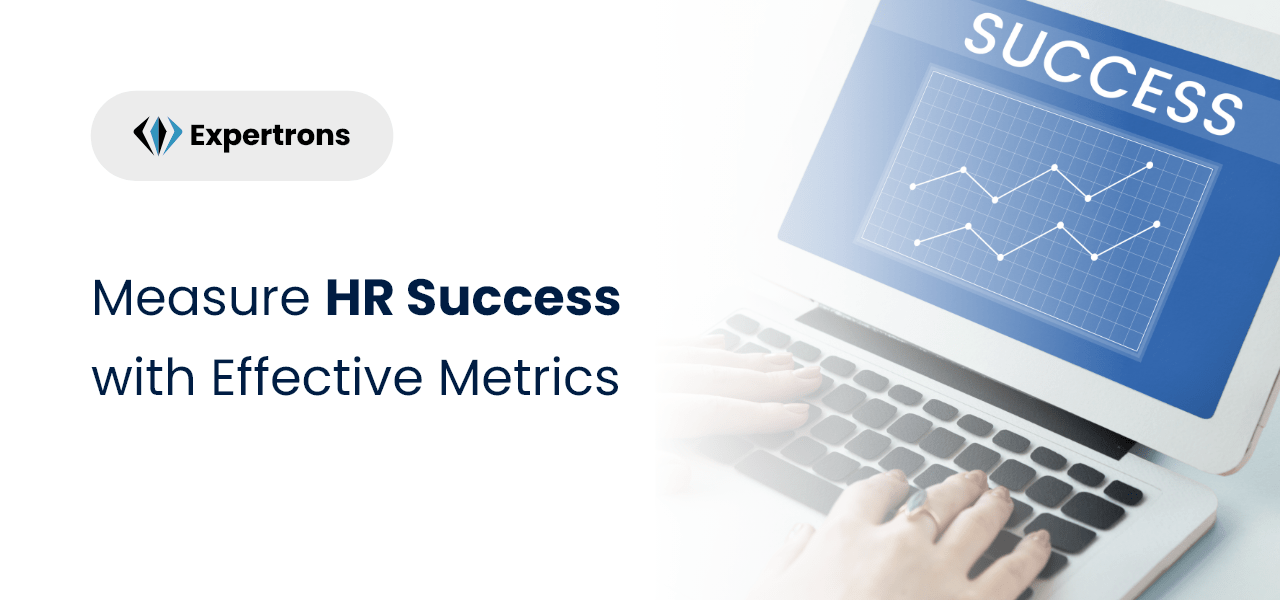Introduction
Human resources as a department is another central unit ideally responsible for monitoring and regulating administrative functions. However, these functions extend to building the HR department as more responsible for driving organizational success. The team should cultivate a culture of organizational harmony and lead through innovative direction to keep the HR department thriving.
Human resources that contribute to essential factors to the organization’s productivity also form one of the most significant expenses of the organization. These expenses can be measured by assessing and monitoring specific objective-oriented metrics which showcase the efficiency and value added by HR. Minimizing human resource management challenges can be vital to managing HR costs.
Hence, today in this article, we will explore how organizations gauge human resources per their own set of HR metrics to understand their effectiveness towards steering company prosperity.
Various factors are involved in measuring success in Human Resources.
It follows specific metrics that provide a more transparent overview of how well the company is performing regarding employee efficiency and the company’s metrics against the HR to evaluate how effectively the department functions towards business goals.
As per findings from a survey by bambooHR, it was found that about 82% of employees agree on the fact that HR metrics are helpful for their organizations.
It influences the organization’s strategy and helps them plan better in the future for more impactful results.
What are HR Metrics?
HR metrics are the quantitative measures that endorse the credibility of the HR department in terms of formulating policies, its effectiveness, and how well it has been aligning with the company’s long-term objectives.
They leverage the HR practices by giving a more precise overview of how the HR policies have worked for the firm to help the authority make decisions taking into consideration factual data.
Wanting To maximize your HR career potential?
Also Read: Unveiling the Benefits of a PG Diploma in Banking and Finance
Metrics to Measure HR Success
Every organization sweeps through several HR metrics to develop an overview of its standpoint in the global market. HR metrics provide a transparent understanding of the impact of HR practices in the company and help recognize where the company is falling short. However, there are specific metrics that collectively predict the financial as well as global standing of the company. It helps them identify core HRM challenges and find quick solutions to improvement.
Below we will discuss some core HR metrics:
1. Absence Rate
This metric measures the average number of days the employees were absent during workdays.
It helps HR professionals understand their need to improve employee satisfaction and promote an optimistic work culture.
2. Cost Per Hire
The cost Per Hire metric measures the average cost incurred by the company to hire a new employee.
This includes external and internal expenses like employee training and recruitment ads.
Click here: Get certified by E&ICT Academy IIT Guwahati to over the human resource management challenges 2x faster
5. Time to fill
This metric calculates the amount of time required to fill a position that brings in the role of HR managers in recruiting talent that best fits the given job role.
It is generated based on the number of workdays an HR professional takes from when they post a position to when the candidate accepts the job offer.
6. Revenue per employee
This metric is used to assess the revenue an employee generates for the organization. It helps the HR team to understand employee productivity and dedication.
The higher the number, the greater the productivity indicating more better numbers in terms of financial performance.
7. Turnover
Turnover is calculated as the number of employees who leave an organization during a specific time.
This metric tracks the company’s attrition rate and identifies loops in employee satisfaction and retention measures.
8. Pay Equity
This metric ensures that there is no disparity between employees on the grounds of race or religion, or any other criteria.
If two employees deliver work of the same value, they are entitled to equal pay.
9. Retention Metrics
Another prominent HR metric is the number of employees who remained in the organization during a given time. It is the opposite of turnover.
This metric shows how well the company has provided employees with a healthy working experience and developed faith and stability.
Benefits of Measuring HR Performance
HR metrics are crucial for HR professionals to understand where they can bring about more changes and drive success.
Various human resource management challenges can only be addressed if there is an active analysis of factual data generated by calculating HR metrics. These metrics benefit the organization and reflect on the effectiveness of HR practices.
Setting metrics to track HR performance offers several benefits to the organization. Furthermore, it demonstrates how specific HRM challenges can be avoided by implementing a few organizational changes.
The changes could be regarding workforce planning, employee training, or compliance.
HR performance can create a massive impact on the companies standing and further be beneficial in assessing the following:
- Predicting Future Costs: If the company keeps track of the HR activities for a specific period, it estimates future costs if the same activities will be carried out the following year. Maintaining data can be highly beneficial for the company to set a budget and segregate costs by predicting the costs of HR practices.
- Measure impact and overall company progress: HR efficiency must always coincide with HR costs. Calculating financial progress and impact allows companies to ensure estimating HR costs. It reflects on how HR has been performing concerning the costs incurred on various activities performed by HR.
- Determine and Implement defined goals and targets: With the data produced after evaluating the metrics, companies implement and reinforce their goals that align with the company values. These data-driven decisions help HR take into consideration the critical lines of improvement.
- Better decision-making: Forecasting on the data extracted in assessing HR impact through predictive analysis helps HR strategize future practices with better planning. It also aids in implementing more impactful measures and optimizing HR costs.
To know more about future innovations in human resource management –
Also Read: Is Upskilling the Key to a Better Future in Banking & Finance Industry?
Conclusion
Human management skills are essential for HR professionals to bind the workforce together. Measuring how effectively HR has contributed to the company’s growth can help tackle several HRM challenges companies face today.
And so, forming a clear understanding of HR metrics and their vitality is among the fundamentals of HR management.
Remaining informed about top industry trends and setting your metrics as per goals can ignite success. So is staying ahead of all the candidates wanting to build a career in human resources.
Pursuing an HR certificate course can at once maximize your chances and set you apart from other aspirants.
Expertrons cater to such requirements with its Strategic Human Resource and Analytics Course that trains aspirants through intensive learning, upskilling them with in-demand industry skills and broadening their horizon of achievements.
Frequently Asked Questions
HR metrics are quantifiable measures that help determine how efficient and impactful the practices of HR have been for the company. These metrics provide valuable insights into HR performance and help organizations identify areas of improvement and make better strategic decisions for the company’s benefit.
Organizations must track core HR metrics like employee engagement, employee retention and training to ensure the proactive participation of employees within the company. Other vital metrics like absence rate, cost of HR per employee, employee productivity rate, satisfaction, and turnover also contribute to the core metrics for the organization to track and make strategic decisions.
HR metrics help organizations make necessary reforms in their recruitment process by distinguishing between effective channels for candidate search, tracking applicants and conversion into hires, cost per hire, and active feedback, further utilizing these data to develop better recruitment procedures.
HR metrics allow companies to understand employee perception of the company. It better explains how dedicated and faithful the employees are towards that company and its values. While high metrics imply a positive and highly collaborative engaged workforce, on the other hand, low metrics imply that the employees are dissatisfied and not fully dedicated to the company’s mission.
Identifying potential leaders who can take over leadership roles is one of the essential metrics that help the company retain talent. Other factors, like optimal company culture and employee engagement, are key metrics that help assess talent development and retention in an organization and foster a culture of growth and mutual respect.











